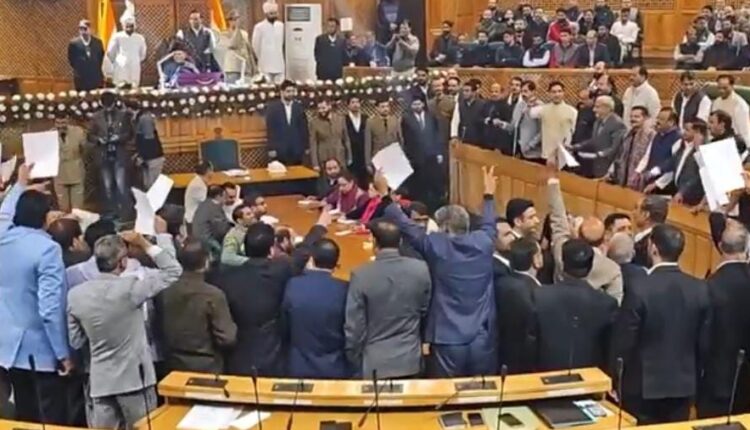Adjournment motions cannot be brought on actions of Central Govt in J&K Assembly: Former LS Secy Gen
Amid growing controversy over the adjournment motion brought by the National Conference-led government regarding the Waqf (Amendment) Bill, 2025—which caused disruptions in the J&K Assembly for three consecutive days—former Lok Sabha Secretary General P. D. T.
Achary on Monday said that such a motion cannot be brought against actions of the central government in the J&K Assembly. He also said that MLAs of ruling party cannot initiate an adjournment motion in any legislature.
Speaking to news agency—Kashmir News Observer (KNO), Achary, an authority on parliamentary affairs in India, said, “An adjournment motion against the central government can only be brought in the Lok Sabha. It cannot be brought on Waqf (amendment) bill -2025 in J&K Assembly.”
The National Conference and its allies had submitted notices to adjourn the Assembly's proceedings to discuss the Waqf (Amendment) Bill, 2025. However, the Speaker rejected these motions, citing that matter is sub -judice.
Achary described the ruling party's attempt to bring adjournment motions in the J&K Assembly as “strange,” stating that such motions are censure motions against the government and can only be initiated by the opposition.
“In the J&K Assembly, only opposition can bring an adjournment motion against the elected government,” he said.
A censure motion is an expression of disapproval of a specific policy, action, or conduct of the government, a minister, or a group of ministers. It is used to highlight government’s failures.
The adjournment motion has its origin in the House of Commons in the United Kingdom.
In India, the Rules of the pre-independent bicameral legislature established under the Government of India Act of 1919 provided for the adjournment. In 1952, the adjournment motion was placed in the Lok Sabha Rule Book. As per Rule 56 of The Rules of Procedure and Conduct of Business in J&K Legislative Assembly, a motion for an adjournment of the business of the House for the purpose of discussing a definite matter of urgent public importance may be made with the consent of the Speaker.
It is pertinent to mention that three MLAs of the ruling alliance in J&K had withdraw their cut motions after they were told that they cannot use the parliamentary device as it amounts to showing disagreement with government's budgetary proposals—(KNO)


Comments are closed.